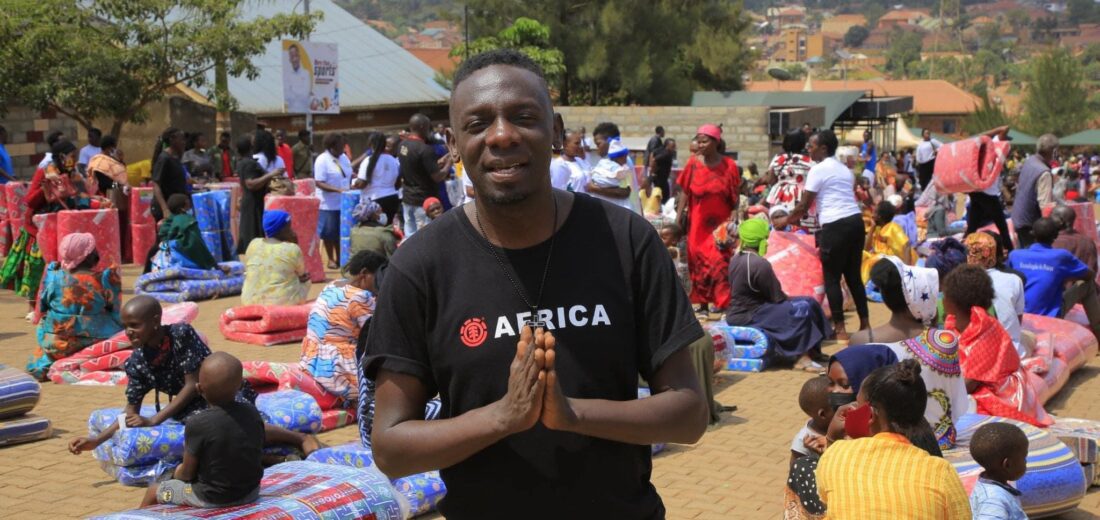
Helping takes having a big heart, not money
The Worship House Nansana is a church in Kampala that mainly caters to the youth. They believe that the young generation holds the key to the future, hence their focus on them. The church was established in 2004 by a team of six teenagers led by Pastor Wilson Bugembe, who was 19 years old at the time. It is known for its generosity to the community, particularly towards orphans, by providing them with housing, education, healthcare, and food. I had the privilege of speaking with the lead pastor who shared more about the church’s activities.
I arrive at Pastor Wilson Bugembe’s house on a sunny Monday afternoon for a lunch invitation. I find him sitting under a tree shade in his yard, having lunch with about thirty children. The group consists of teenagers, toddlers, and young adults. I thought it was a party, only for him to introduce them all as his children. I knew that he had adopted children who lived with him, but I had never imagined them being this many.
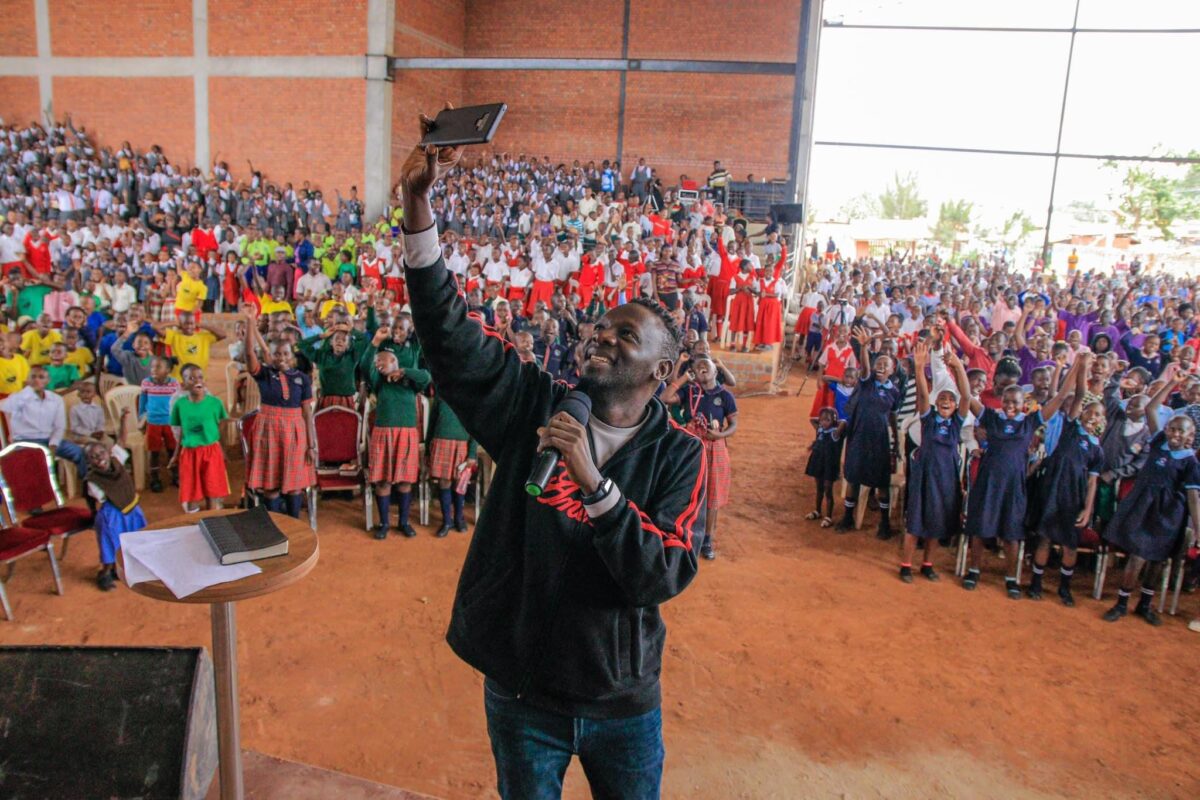
“We always have families adopting kids from Mercy Child Care, so I decided to do the same. We now live as a family,” he says. Mercy Child Care is the church’s children’s home, where orphans and homeless children shelter. The program has supported over 800 children. It has grown and has a school and hospital where the children get free services. His story has ignited a spirit of generosity and community involvement within the church. He lost both his parents at an early age and had to grow up as an orphan, moving between different relatives’ homes and even spending some time on the streets.

However, a stranger eventually took him in, providing him with a home and the opportunity to continue his education. It is because of this kindness that he is who he is today. “Whenever I encounter a child or anyone who requires assistance, it reminds me of my past struggles and naturally compels me to offer help. My painful experiences have given me strength.” He is also a well-known gospel artist whose music not only narrates his journey but also encourages people to extend a helping hand towards the underprivileged members of society whenever they can.
Giving as a culture at the worship house
Apart from assisting children, the church runs various programs to support the community. One such program is the “Good Samaritan Day,” where groups such as single mothers, orphans, disabled and elderly individuals come to the church to receive necessities such as food, clothing, bedding, and money. This special day is always celebrated on his birthday since he decided to share his special day with the disadvantaged every year.
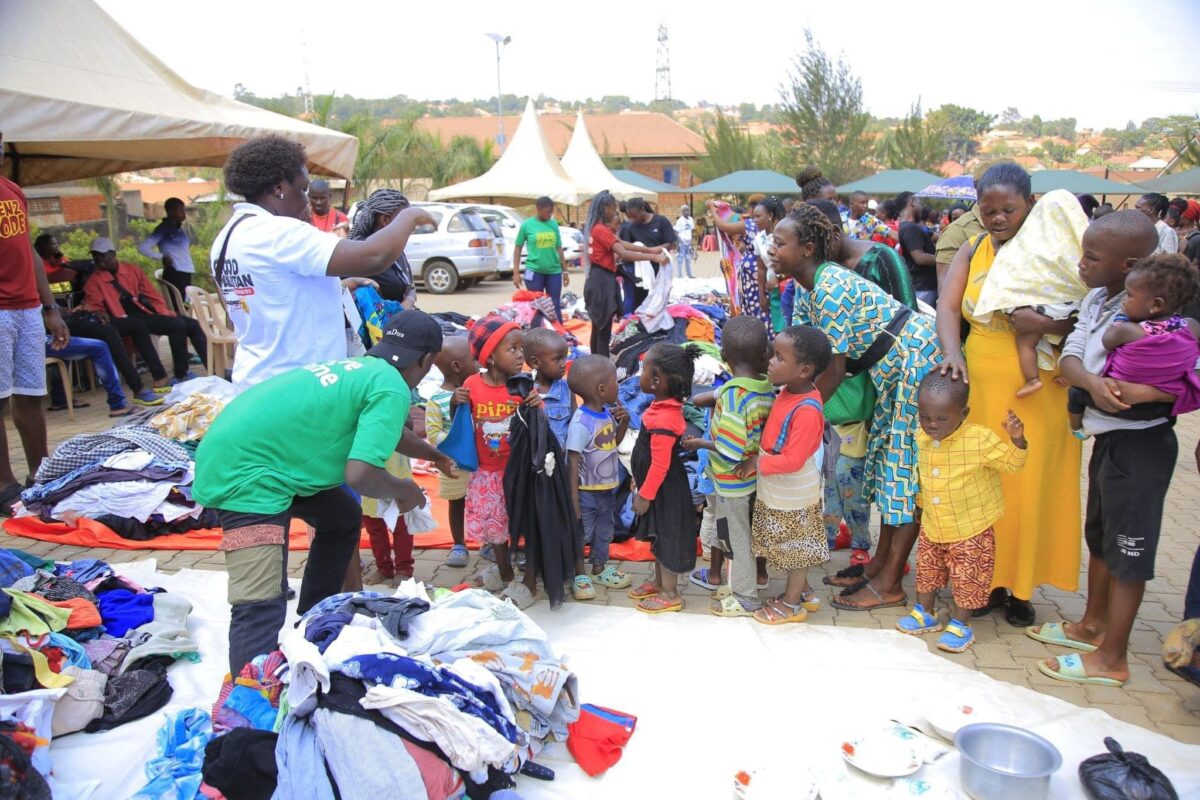
To reach out to the youth under depression, anxiety and sometimes lawsuits, the church offers free counselling services by team leaders, professional counsellors, and in some cases, lawyers. “There’s always someone that needs a different kind of support, so we try to think of new ways to reach out,” he says. The church has a sports ground which is accessible to all, for free, at any time. This facility has helped many young men in the area to channel their energy away from engaging in criminal activities and excessive drinking in nightclubs, towards a healthier lifestyle.
The church is also known to be welcoming to secular artists who seek prayer or assistance without feeling judged. For example, Fresh Kid, a young artist from a financially disadvantaged family, has a sibling whose tuition is being catered for by the pastor because his parents can’t afford to pay for his education. The church’s culture of community giving has expanded to individual members who are undertaking personal projects to give back to the community. For instance, Judith Akayo, the church administrator, provides necessities to the elderly in Soroti.
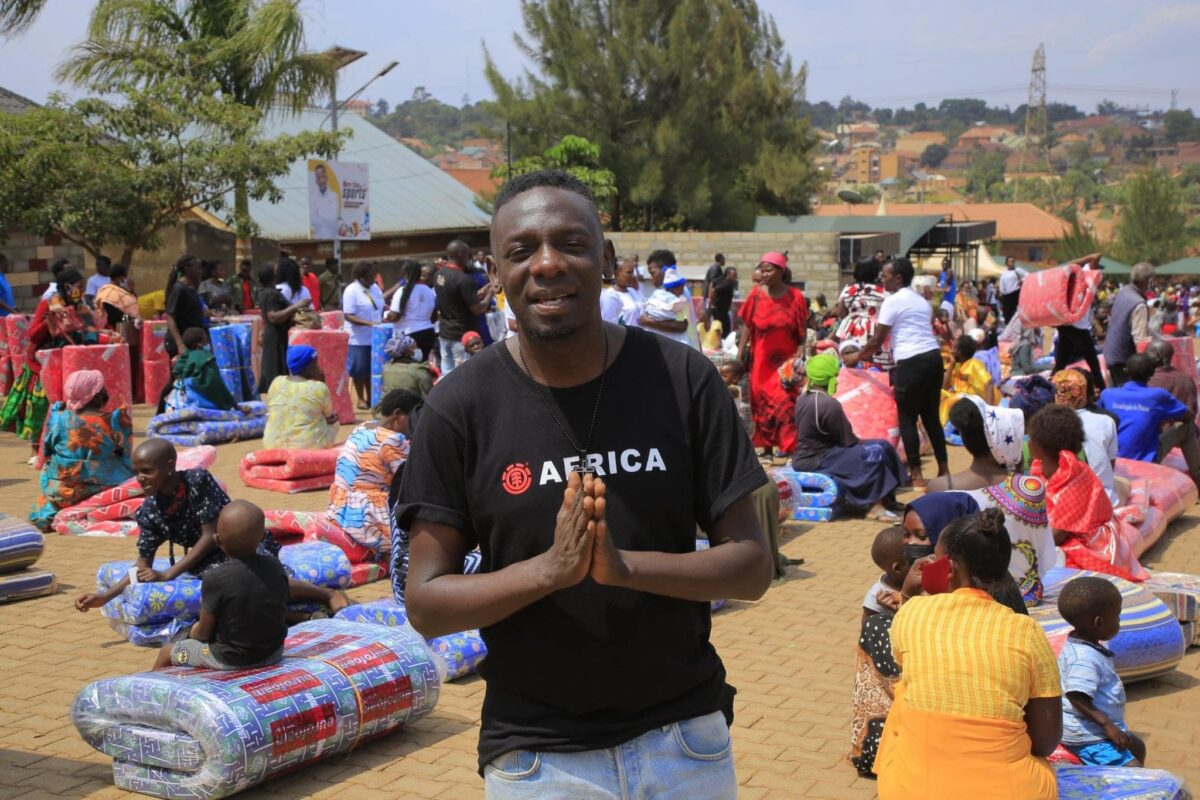
Damasco, a youth leader in the same church, runs a local charity organization that reaches out to teenage mothers and the elderly in Kanjuki village. Similarly, Richie Zion offers a free home for youths in the slums and helps them develop their talents and skills. “Sharing the little we have is part of us now. Everyone is helping someone any way they can,” he says. Some community members refer to the church as “ours” since they do not feel financially burdened. They view it as a place to rest. He believes this makes running the church much easier.
Challenges and advice for religious leaders
While sharing his story, the pastor walks me around his home. As we do so, I notice how friendly and close he is with each of the children. One of them brings him a list of things she needs to buy for her grandmother as she is planning on visiting her. The pastor had asked her to make it so they could surprise her grandmother. This gesture greatly moves me. The biggest challenge is that the need for help never stops, yet the resources are never enough.

“It may surprise you to learn that we never have a budget for these activities. We live by believing that we can,” he says. The funds come from donations made at church, online contributions, and sometimes from payments received when the pastor performs in concerts. On special days like Good Samaritan Day, people donate food and other necessities. It’s a collective effort. Sometimes, they have no option but to take up new responsibilities. For instance, anonymous people may abandon newborns at the church or hand them over to the police or community leaders, who eventually bring them to the church.
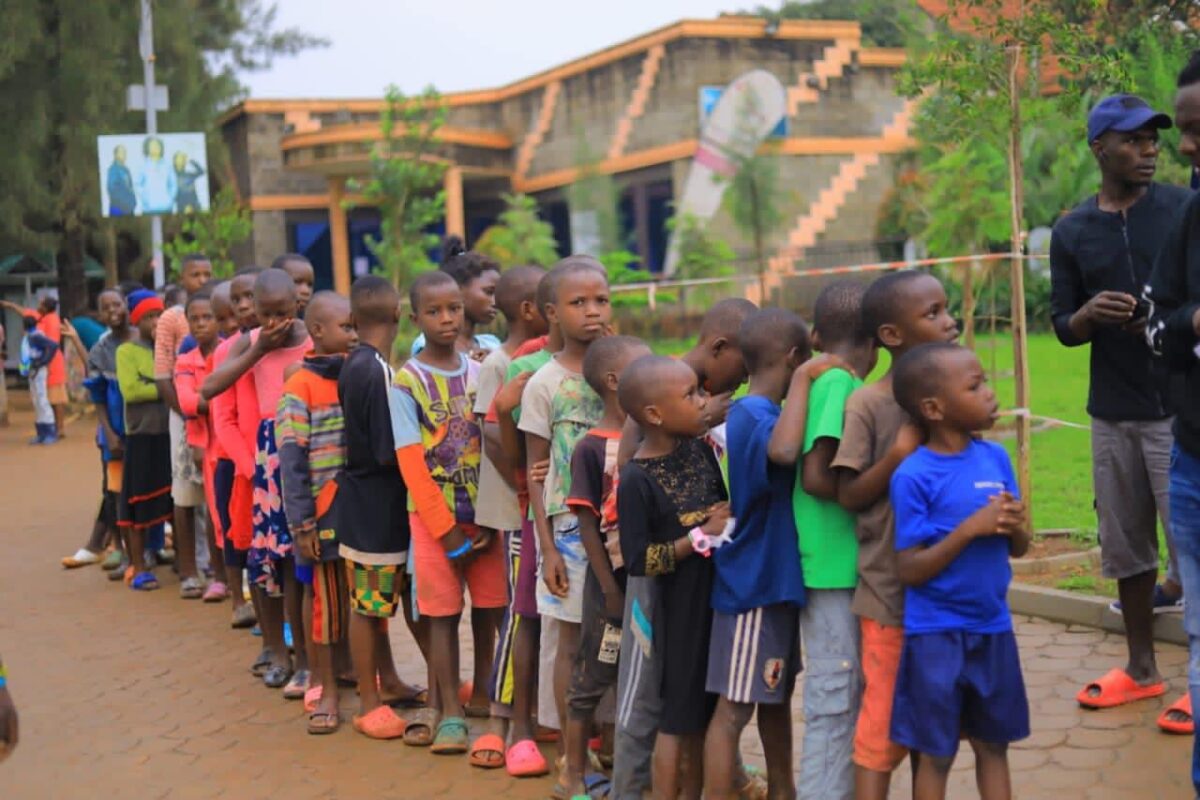
“We have a case of a child who witnessed his father killing his mother. Such a child just needed a safe place to call home. Such incidents don’t wait for a budget, you just take up the responsibility and believe God will provide.” He wishes that everyone, wherever they are, feels the burden of putting a smile on someone’s face. He believes that helping the needy is lending to God. This is why all the community-giving activities the church does are non-sectoral. They reach out to everyone regardless of their religious affiliations.
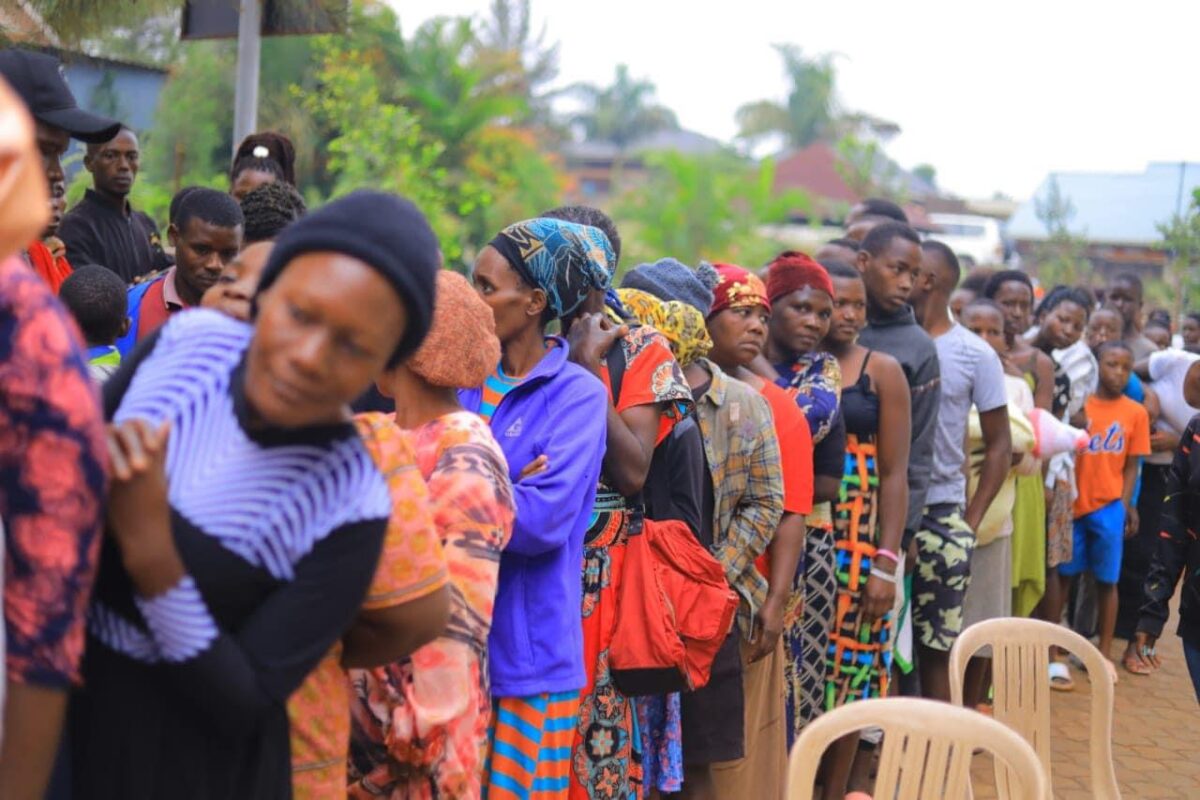
It is also satisfying to watch someone become influential in society because of the help you render to them. He advises other church leaders to let the community see the church as a blessing rather than a burden by becoming selfless in serving. “Worship house is not perfect either. We’re still learning and trying to imitate the giving heart of Jesus. He gave more than he took from the community during his service,” he states. It’s not about having enough money, it’s about having a big heart. He adds that giving is a gesture of leadership and a way the church could preach the gospel and set a good example to improve our community.

Leave a Reply